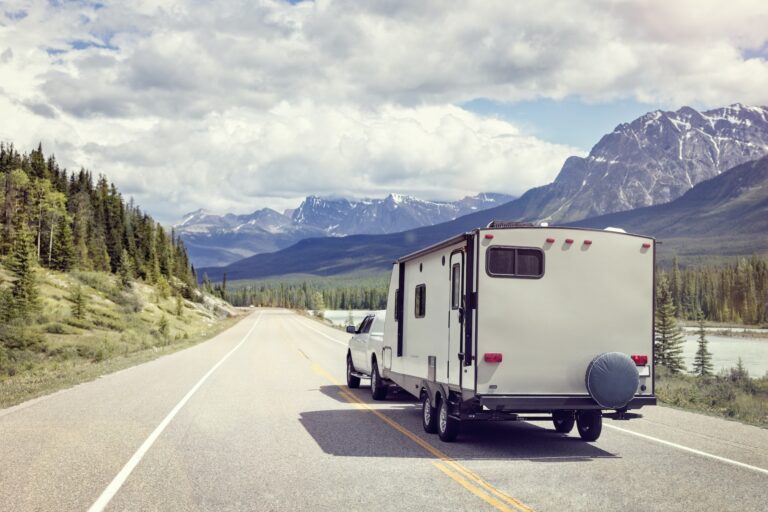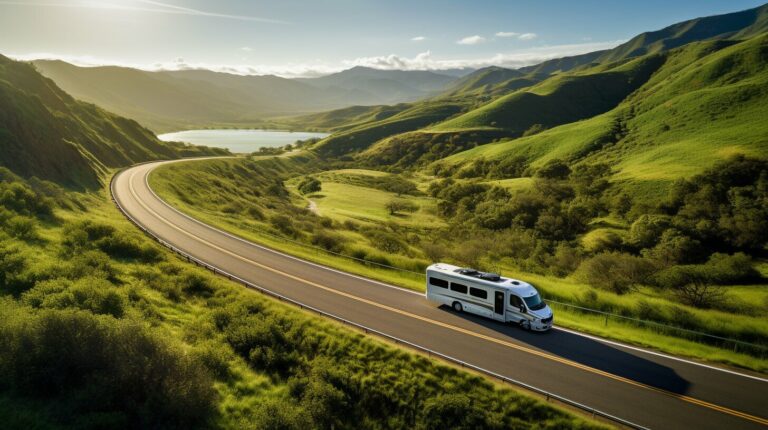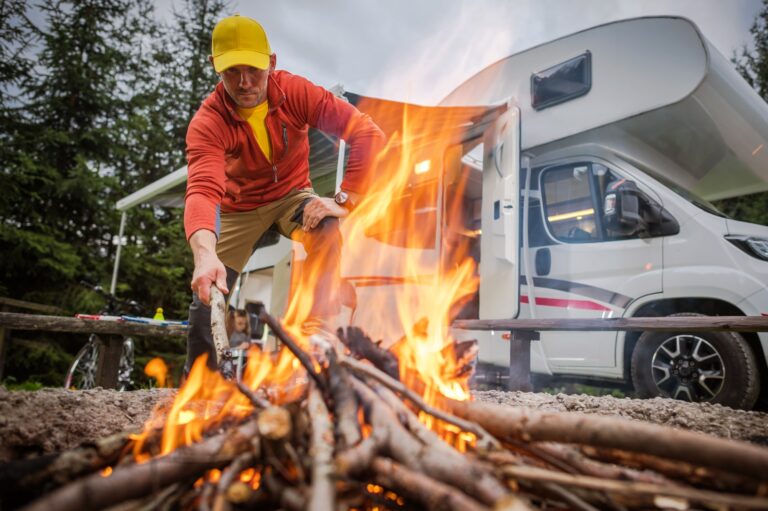Welcome to our ultimate guide for RV travel tips! If you’re planning an RV road trip, careful planning and preparation are essential for a successful journey. In this article, we’ll provide expert advice on everything you need to know for your RV adventure, from trip planning and packing to maintenance and safety tips.
Whether you’re a seasoned RV traveler or a beginner, our guide has you covered. So, buckle up and let’s hit the road with confidence!
RV Trip Planning: Essential Steps for a Smooth Journey
Planning an RV trip can be overwhelming, but with the right preparation, it can be an unforgettable adventure. Here are some essential steps to take for a smooth and enjoyable RV journey.
Choose the Right Destination
The first step in planning an RV trip is to choose the right destination. Consider factors such as the time of year, your travel goals, and the activities you want to do. Do you want to explore national parks, scenic roads, or beaches? Research your options and choose a destination that suits your interests.
Select an RV
The next step is to select an RV that suits your needs and budget. Determine the size of the RV you need based on the number of people traveling and the amount of space you require. Consider factors such as mileage, fuel efficiency, and amenities such as air conditioning and a kitchen.
Decide on a Budget
RV travel can be a cost-effective way to see the country, but it’s important to have a budget in mind before you hit the road. Consider factors such as campsite fees, fuel costs, and food expenses. Create a budget that includes all of your expected costs and stick to it.
Pack RV Essentials
When packing for an RV trip, it’s important to bring the essentials. This includes items such as a first aid kit, tool kit, and extra supplies such as water and food. Don’t forget to bring items such as bedding, towels, and toiletries.
Other essential items include leveling blocks, water hoses, and electrical adapters. These items will help to ensure a comfortable and safe RV trip.
Make Reservations
Finally, make reservations for your RV trip. This includes reserving campsites and RV parks, as well as planning your travel route. Research your options and make reservations well in advance to ensure availability.
With these essential steps, you’ll be well on your way to an unforgettable RV adventure. Happy travels!
RV Camping Tips: How to Find the Best Campsites
One of the most exciting parts of planning an RV trip is deciding where to camp! With so many options available, it can be overwhelming to choose the best campsites for your trip. Here are some tips to help you find the perfect spot:
Types of Campsites
There are several different types of campsites to choose from, depending on your preferences and needs:
| Type of Campsite | Description |
|---|---|
| State Parks | Located in state-owned parks and recreation areas |
| National Parks | Located in national parks and forests |
| Private Campgrounds | Owned and operated by private companies or individuals |
When choosing a campsite, consider the location, amenities, and hookups available. State and national parks may have limited amenities, but offer beautiful scenery and natural surroundings. Private campgrounds often have more hookups and amenities, but may be more crowded and less secluded.
Reservations
It is important to make reservations ahead of time, especially during peak season. Most campsites allow reservations to be made online or over the phone. Be sure to check the cancellation policy before making a reservation.
What to Look For
When choosing a campsite, consider the following factors:
- Hookups: Check if the site has electric, water, and sewer hookups, or if you will need to use a generator and bring your own water.
- Amenities: Look for amenities like showers, restrooms, laundry facilities, and recreational activities that can make your stay more comfortable and enjoyable.
- Location: Consider the proximity to attractions and activities you plan to do, as well as noise level and privacy.
By considering these factors, you can find the best campsite for your RV trip, and enjoy the great outdoors in comfort and style!
RV Packing Tips: How to Maximize Space and Efficiency
Packing for an RV trip can be a challenge, especially if you are traveling with a large group or planning an extended stay. However, with some careful planning and preparation, you can pack efficiently and make the most of the limited space available in your RV.
Here are some tips and tricks for maximizing space and efficiency when packing for your RV trip:
- Pack light: RVs have limited storage space, so it’s important to pack only what you need. Prioritize your packing list and leave behind items that you can live without.
- Organize your items: Use organizers like storage bins, packing cubes, and hanging shelves to keep your items neat and organized. Label your containers for easy access and to avoid wasting time searching for things.
- Maximize storage space: Use every inch of available space in your RV. Consider installing extra storage compartments or using wall-mounted organizers to free up floor space. Use vacuum bags to compress your clothing and bedding to save space.
- Avoid overpacking: Don’t bring more food than you need, especially perishable items. Instead, plan your meals ahead of time and buy groceries as needed on your trip.
- Bring multi-purpose items: Look for items that can serve multiple functions to save space. For example, a cast-iron skillet can be used for cooking a variety of meals, and a Swiss Army knife can be used for everything from cutting food to opening cans.
- Consider renting equipment: If you don’t have enough space in your RV for outdoor gear, consider renting items like bicycles, kayaks, and camping chairs at your destination.
- Bring entertainment options: RV trips can be long and boring, so be sure to pack entertainment options for everyone. Bring books, board games, and DVDs for rainy days or quiet evenings in the RV.
By following these RV packing tips, you can make the most of your available space and enjoy a comfortable and organized trip. Happy travels!
RV Maintenance Tips: How to Keep Your RV Running Smoothly
Keeping your RV in good working order is essential for a successful road trip. Here are some tips and advice on how to maintain your RV:
- Perform regular maintenance checks on your RV, including tire pressure, oil changes, and battery life.
- Keep your RV clean and organized to prevent damage and optimize space.
- Pack a basic tool kit for emergency repairs.
- Learn how to troubleshoot common problems, such as electrical or plumbing issues, and have spare parts on hand if possible.
- Take your RV to a professional for major repairs or maintenance issues.
Remember that proper maintenance is key to avoiding breakdowns or other issues on the road. With a little effort, you can keep your RV running smoothly and enjoy a stress-free trip.
RV Maintenance Checklist
Here is a basic maintenance checklist to help keep your RV in tip-top shape:
| Area of Maintenance | Frequency | Tasks |
|---|---|---|
| Tires | Before each trip and every 5,000 miles | Check tire pressure, tread wear, and any signs of damage. |
| Engine | Every 3,000-5,000 miles or as recommended by manufacturer | Change oil and filter, check fluids, belts, and hoses for wear and damage. |
| Electrical System | Before each trip and annually | Check batteries, fuses, and circuit breakers; test smoke detectors and carbon monoxide detectors. |
| Plumbing System | Before each trip and annually | Check for leaks, cracks, and wear; drain water heater and fresh water tank; sanitize water system. |
| Propane System | Before each trip and annually | Check connections and hoses for leaks, inspect propane tanks and regulators. |
| Exterior | Before each trip and annually | Inspect roof, windows, doors, and seams for leaks and damage; check awnings and slide outs for proper operation. |
By following this checklist and performing regular maintenance, you can ensure that your RV is in great shape for your next road trip.
RV Safety Tips: How to Stay Safe on the Road
Driving an RV can be an exciting and fun experience, but it is important to prioritize safety to avoid accidents and emergencies while on the road. Here are some essential RV safety tips to keep in mind:
RV Driving Tips
- Always wear your seatbelt, and make sure all passengers do the same.
- Give yourself plenty of time and space to brake, accelerate, and turn.
- Keep a safe distance from other vehicles and avoid tailgating.
- Use your turn signals, and check your mirrors and blind spots frequently.
- Avoid distracted driving, including the use of phones or other electronic devices.
RV Maintenance Tips
- Perform regular maintenance checks on your RV, including fluid levels, brakes, tires, and electrical systems.
- Keep a maintenance log to track repairs and preventative maintenance.
- Check weather and road conditions before traveling, and adjust your plans accordingly.
- Be prepared for emergencies by carrying a first aid kit, tool kit, and other essential supplies.
- Have a plan in place for breakdowns or other unexpected situations, such as contacting a roadside assistance service.
Campsite Safety Tips
- Choose a campsite with good lighting and security measures in place.
- Be aware of your surroundings and keep valuables locked up when not in use.
- Follow campfire safety guidelines, including building fires in designated areas only.
- Teach children about basic safety rules, such as not wandering off alone or playing near the road.
- Be mindful of wildlife in the area, and avoid leaving food or trash out that could attract animals.
Remember, safety should always be your top priority when traveling by RV. By following these RV safety tips and using common sense, you can help ensure a safe and enjoyable journey for everyone onboard.
RV Beginner’s Guide: Everything You Need to Know Before You Go
Embarking on an RV road trip can be an exciting and rewarding adventure, but it’s important to be properly prepared. Follow these tips for a successful journey:
Choose the Right RV:
The first step in planning an RV trip is choosing the right vehicle. Consider factors such as size, amenities, and cost when selecting an RV. Research different types of RVs, including motorhomes and trailers, to determine which is best for your needs.
Plan Your Route:
Before hitting the road, plan your route carefully. Consider factors such as distance, driving time, and scenic routes when deciding where to go. Make sure to have a backup plan in case of unexpected delays or changes in weather conditions.
Pack the Essentials:
When packing for an RV trip, remember to bring the essentials. These may include cooking supplies, bedding, and toiletries. Don’t forget basic maintenance tools and first-aid supplies as well.
Drive and Navigate Safely:
Driving an RV can be challenging, especially if you are new to it. Make sure to follow safe driving practices, including keeping a safe distance from other vehicles and taking breaks as needed. Use a GPS or map to navigate and plan your route ahead of time.
Prepare for Camping:
Camping is a big part of the RV experience, so make sure to choose campsites that are suitable for your needs. Look for sites that offer hookups, amenities, and enough space for your RV. Always make reservations ahead of time to ensure availability.
Stay Connected:
Staying connected on an RV trip can be a challenge, especially if you are in remote areas. Consider investing in a mobile hotspot or satellite phone to stay in touch with loved ones and access important information.
Be Flexible:
Finally, remember to be flexible. RV travel is all about adventure and exploration, so embrace unexpected detours and changes in plans. Keep an open mind and enjoy the journey!
RV Travel Hacks: Tips and Tricks for a Better Trip
Traveling in an RV can be an incredible experience, giving you the freedom to explore new places with all the comforts of home. But, making the most of your trip requires careful planning and preparation. Here are some RV travel hacks and tips to help you have the best possible trip:
- Make the most of your space: RVs can be tight on space, so it’s important to make every inch count. Consider using collapsible items, like kitchenware, to save on space when not in use. Use hanging storage solutions to keep things organized and off the floor. Use over-the-door shoe organizers for extra storage.
- Meal prep before you go: Meal planning is essential for saving time and money on the road. Consider doing some meal prep before your trip, like pre-chopping veggies or preparing freezer meals that can be easily reheated on the road.
- Stay organized: Keeping your RV organized can make a huge difference in how enjoyable your trip is. Use clear plastic containers for storage so you can easily see what’s inside. Keep a dry erase board or planner to keep track of your itinerary and important dates.
- Take advantage of outdoor space: RV camping often means spending a lot of time outdoors. Make the most of your outdoor space by bringing comfortable chairs, a portable grill, and a fire pit for relaxing evenings under the stars.
- Bring entertainment: While it’s great to unplug and enjoy nature, it’s also nice to have some entertainment options on hand. Bring board games, books, and a portable DVD player for rainy days or quiet evenings.
- Stay connected: While you’re on the road, it’s important to stay connected with loved ones and have access to emergency services. Consider investing in a mobile hotspot or satellite internet service so you can stay connected even in remote locations.
By following these RV travel hacks, you can make the most of your trip and create unforgettable memories with your loved ones.
RV Destinations: Best Places to Visit in North America
Embarking on an RV trip allows you to explore some of the most beautiful destinations in North America. Whether you’re looking for breathtaking natural wonders or vibrant cities, there’s a destination for every type of traveler.
Yellowstone National Park, Wyoming
Yellowstone National Park is a must-visit destination for any RV enthusiast. With its stunning natural beauty, including geysers, hot springs, and majestic wildlife, this park offers a truly unforgettable experience. Be sure to check out the iconic Old Faithful geyser and take a hike to one of the many waterfalls in the park.
Grand Canyon National Park, Arizona
The Grand Canyon is one of the most famous natural wonders in the world, and for good reason. This awe-inspiring destination offers stunning views and unparalleled opportunities for hiking and exploring. Whether you’re an outdoor enthusiast or just looking to take in the breathtaking scenery, the Grand Canyon is sure to leave a lasting impression.
Asheville, North Carolina
If you’re looking for a charming and vibrant city to visit, Asheville is the perfect destination. This North Carolina city offers a unique blend of Southern charm and bohemian culture, with plenty of art galleries, shops, and restaurants to explore. Be sure to check out the Biltmore Estate, a stunning mansion that offers tours and other activities for visitors.
Acadia National Park, Maine
If you’re looking for a destination that offers scenic beauty and outdoor adventure, Acadia National Park is a great choice. This park features rocky shoreline, dense forests, and plenty of hiking trails to explore. Be sure to check out Cadillac Mountain, the highest peak on the East Coast, for stunning views of the park and surrounding landscape.
Banff National Park, Alberta, Canada
If you’re willing to venture beyond the US border, Banff National Park in Canada is a must-visit destination for any RV traveler. This park is home to some of the most picturesque scenery in North America, with turquoise lakes, soaring mountains, and expansive glaciers. Be sure to take a drive down the Icefields Parkway, a scenic route that offers breathtaking views at every turn.
No matter where you decide to go on your RV road trip, be sure to take the time to explore and savor the experience. These destinations are just a few of the many incredible places that North America has to offer, and each one is sure to provide a unique and unforgettable adventure.
RV Accessories: Must-Have Items for Your Road Trip
As you plan your RV road trip, it’s important to make sure you have all the necessary accessories to make your journey comfortable and stress-free. Here are some must-have RV accessories to consider:
| Accessory | Description |
|---|---|
| Leveling Blocks | These blocks help level out your RV on uneven ground, providing a more stable and comfortable living space. |
| Water Hoses | Having a few water hoses of different lengths will allow you to easily connect to campground water sources and keep your RV’s water tanks full. |
| Electrical Adapters | Make sure you have the correct adapters to connect your RV to different types of electrical outlets at campsites. |
| Wheel Chocks | These blocks can be placed against your RV’s tires to prevent it from moving while parked. |
| Portable Grill | Grilling outside is a fun and convenient way to cook meals while on the road. A portable grill can be easily stored in your RV. |
| Outdoor Chairs | Bring along comfortable outdoor chairs to relax in outside of your RV. |
| GPS Unit | A GPS unit specifically designed for RVs can help you navigate unfamiliar roads and avoid low bridges, narrow roads, and other obstacles. |
| Surge Protector | A surge protector can protect your RV’s electrical system from power surges and other electrical issues that could cause damage. |
| Tool Kit | A basic tool kit can help you perform minor repairs and maintenance on your RV while on the road. |
Make sure you have all the necessary accessories before hitting the road on your RV adventure. These items will help you stay comfortable, safe, and prepared for any situation that may arise.
RV Rental: Pros and Cons of Renting an RV
If you’re considering an RV trip, you may be wondering if it’s better to rent or buy an RV. There are pros and cons to both choices, and your decision will depend on your budget, travel plans, and personal preferences. Here are some things to keep in mind when deciding if RV rental is right for you.
Pros of RV Rental
| Pros | Details |
|---|---|
| Convenience | Renting an RV is convenient because you don’t have to worry about maintenance or storage when you’re not using it. You can pick up the RV at the rental location and return it when you’re done. |
| Cost | Renting an RV can be cheaper than buying one, especially if you only plan to use it for a short period of time. You don’t have to worry about the upfront cost of buying an RV, and you don’t have to pay for storage or maintenance. |
| Flexibility | Renting an RV gives you the flexibility to choose the size and type of RV that fits your travel needs. You can rent a larger RV for a family trip, or a smaller one for a solo adventure. |
Cons of RV Rental
| Cons | Details |
|---|---|
| Restrictions | When you rent an RV, you may be subject to restrictions that limit where you can go and how far you can travel. You may also be required to return the RV to the rental location, which can limit your travel plans. |
| Condition | You won’t have control over the condition of the RV you rent, which could affect your comfort and safety on the road. Make sure to inspect the RV thoroughly before you rent it. |
| Additional Costs | Some RV rental companies charge additional fees for mileage, insurance, and other expenses. Be sure to read the rental contract carefully to understand what you’re paying for. |
Ultimately, the decision to rent or buy an RV will depend on your individual needs and preferences. Renting an RV can be a great option for those who want to try RV travel without making a big investment. However, if you plan to use an RV frequently or for long periods of time, buying may be a more cost-effective option in the long run.
RV Travel Tips FAQ: Answers to Your Burning Questions
Are you new to RV travel and have some burning questions? Don’t worry, we’ve got you covered! Here are some frequently asked questions about RV travel, along with expert answers and advice.
Q: Do I need a special driver’s license to drive an RV?
A: In most cases, a regular driver’s license is all you need to drive an RV. However, some states have special requirements for larger RVs, so be sure to check the regulations in the state(s) you’ll be traveling through. It’s always a good idea to take a defensive driving course before hitting the road.
Q: How do I find dump stations to empty my RV’s holding tanks?
A: Dump stations can be found at RV parks, campgrounds, and truck stops. You can also use websites and apps like Sanidumps and Allstays to find dump stations along your route.
Q: What’s the best way to level my RV?
A: Leveling blocks are the most common way to level an RV. Simply place them under the tires on the low side of the RV until it’s level. There are also electronic leveling systems available that can automatically level your RV with the push of a button.
Q: How do I keep my RV’s refrigerator running while on the road?
A: Your RV’s refrigerator can run on propane, electricity, or battery power. If you’re driving, the propane setting is the most efficient option. Just make sure to turn it off while refueling.
Q: Can I bring my pets on an RV trip?
A: Absolutely! RV travel is a great way to bring your pets along on vacation. Just be sure to check the rules and restrictions at campgrounds and RV parks, and bring along any necessary supplies like food, water, and bedding.
Q: How do I stay connected to the internet while on the road?
A: There are several options for staying connected to the internet while on an RV trip. Many RV parks and campsites offer Wi-Fi, and there are also mobile hotspots and satellite internet options available. Just make sure to choose a plan and device that works with your RV lifestyle and travel plans.
Q: What should I do if my RV breaks down on the road?
A: If your RV breaks down on the road, the first thing to do is to find a safe place to pull over. Turn on your hazard lights and put out warning triangles or flares if needed. If you’re unable to make repairs, call your roadside assistance provider or a local RV repair service.
With these answers to some common RV travel questions, you’ll be well on your way to a successful and enjoyable RV road trip!




